During the years 2017 and 2018, Mykolas Majauskas, a member of the Seimas of the Republic of Lithuania, organized conferences about the positive impact of THC cannabis oil for patients that are diagnosed with oncological diseases. Patients and their family members that use THC oil shared their positive experiences with the purpose of attracting government attention to the right of using medical cannabis as a treatment for oncological diseases. Unfortunately, so far the attitude of the government and the legal system has not changed much as the penalty of imprisonment for 10 to 15 years is still legitimate if the person has more than 25 grams of THC cannabis plant extract available for disposal.
Mykolas Majauskas is one of the most active members of the Lithuanian Parliamentary when it comes to discussing the topics of production, sales, and usability of cannabis products in Lithuania. Danielė Morgana, who joined the Seimas after the last elections as a member of the Freedom Party, is also doing her best to grant people a legal possibility to use cannabis for medical purposes as well as establishing an adequate control of narcotic drugs and psychotropic substances. Neither the patients with oncological diseases nor the young people should be punished for using cannabis products, as in the case of the former ones the usage of it might have a positive impact on their health while in the case of the latter ones the decision to use cannabis for entertainment reasons should be understood as an impulsive, immature, and innocent act.
In June 2021, the members of the Lithuanian Parliamentary finally approved the legalization of CBD products in Lithuania!
There are plans to establish rules and standards for producing and selling CBD products in Lithuania. It is still about to be seen how the product control and supply model will look like.
Isolated or synthetic cannabinoids are not the same as medical cannabis
Ramūnas Karbauskis, the leader of a current opposition party Lithuanian Farmers and Greens Union, as well as other members of the party, such as Agnė Širinskienė and Aurelijus Veryga, more than once have brought a statement that cannabis will not be legalized as long as they are in the government. The conferences and discussions about the positive impact of medical cannabis were ridiculed and laughed at. It is really a shame when politicians tend to rely on emotions and preconceived notions rather than scientific research.
Later on, Ramūnas Karbauskis and his political party realized that opposing the law on medical cannabis will not favor them in the upcoming elections, so in 2019 the Lithuanian Farmers and Greens Union announced that they have a plan for legalizing medical cannabis in the near future.
It did not take long to realize that it was a bluff before the elections. 2 years after the ability to legally buy and use medical cannabis still does not exist. The new law amendments allow using pharma-manufactured cannabis production with synthetic and isolated cannabinoids only. Sadly, no pharmaceutical companies are interested in investing to the medical cannabis market in Lithuania, as the industry here is not profitable enough. This results in a frustrating situation, where neither professionals nor the products themselves exist in the country at all.
Also, it is worth mentioning that there is a misconception when trying to understand the meaning of medical cannabis. The term “medical cannabis” is used to describe the type of cannabis that is used for therapeutic purposes and often consisting a THC concentration greater than 0,2%, but the term itself does not describe a concrete species of it.
Medicaments, containing a synthetic THC analog or an isolated natural phytocannabinoid, are not cannabis and should not be miss considered they are.
Cannabis has a strong medical potential
It is known that cannabis products and certain plant components can be used to treat a variety of diseases and disorders as well as used as prevention and relief of symptoms or even to reduce the side effects of certain traditional treatments.
Parkinson’s disease, epilepsy, autism, post-traumatic stress disorder, anorexia, diabetes, irritable bowel syndrome, depression, insomnia, Alzheimer’s, multiple sclerosis, chronic pain, glaucoma, arthritis, Crohn’s disease, schizophrenia, panic attacks, migraine, and even drug addiction – this is only a small list of ailments in which cannabis can be particularly helpful.
It is no secret that scientists are most interested in difficult-to-treat and life-threatening diseases, e.g. cancer. Because of that, there is enough evidence that testifies the anti-cancer features and benefits of cannabinoids in reducing the side effects of chemotherapy and radiotherapy.
So should or should not oncologists recommend medical cannabis?
It is not a rare occasion to hear and read public statements in mass media about the positive impact of medical cannabis. Lithuania is not an exception here. Oncologists are often heard defending cannabis by stating that it can be useful for their patients. It is undoubtedly understandable and not their fault they can only recommend their patients to use and look for the right products, but not prescribe it themselves. Restrictions and ungrateful laws prevent doctors from appointing and monitoring the use of medical cannabis products.
The United States is one of the countries where the potential medical use of cannabis and its parts is being assessed and researched. Although the majority of states legalize cannabis consumption for entertainment and medical purposes, however, unfavorable laws and insufficient government funding make it difficult to implement further researches.
Further researches are very important to clarify all the aspects of phytocannabinoids and their impact on fighting cancer, as every patient is very unique and each situation should be managed as an individual case. There is still not entirely sure what composition cannabis products should be used in different cases of cancer or what dosing should fit all patients the best.
Expert opinion: Dr. Donald Abrams
Dr. Donald I. Abrams is an oncologist at the main San Francisco hospital, an integrative oncologist at the UCSF Osher Center for Integrative Medicine, and a clinical medicine professor at the University of California.
From 2003 to 2017 dr. Donald Abrams was the head of the Department for Hematology-Oncology in the Zuckerberg San Francisco General Hospital. Since the 1980s the Professor worked with the first AIDS patients.
Later on, since the year 1992, dr. Donald Abrams started searching for answers about cannabis’s impact on patients with oncological diseases.
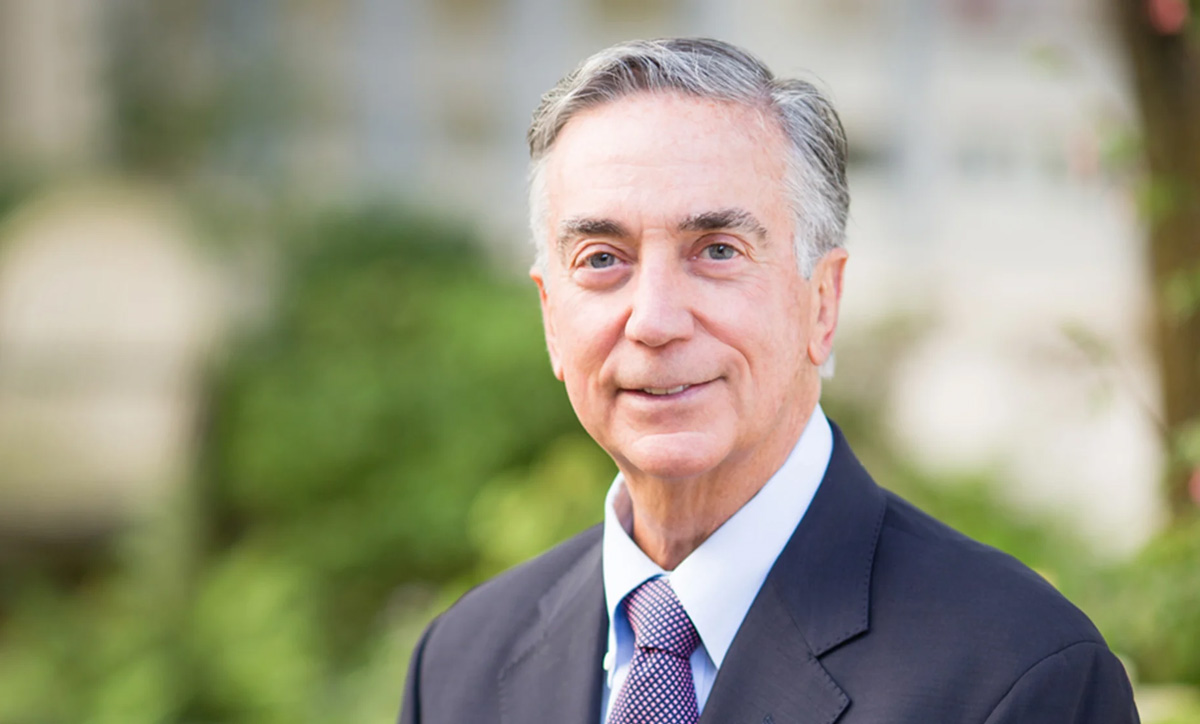
The Professor works as an oncologist for more than 30 years now. Most of his patients use cannabis to improve their health. Dr. Donald Abrams faces people fighting cancer every day. Oncological patients regularly report loss of appetite, nausea, vomiting, insomnia, different types of pain, depression or anxiety. These are side effects often caused by traditional treatments.
In the seventies, dr. Donald Abrams was a medical intern working and living in San Francisco. According to the Professor, many people used cannabis including people with cancer. Cannabis was a popular choice among sick people because there were few medications at the time to stop nausea and vomiting.
“We had Prochlorperazine or Kompazin and Tigan (trimethobenzamide hydrochloride), but they weren’t very effective. Young people with oncological diseases, such as testicular cancer or Hodgkin’s lymphoma, once told me, “Did you know that cannabis helps us fight nausea better than your prescription drugs,” – said Donald I. Abrams.
Dr. Abrams believes it was patient feedback that encouraged the U.S. National Cancer Institute, the National Institutes of Health, and several pharmaceutical companies to begin research using synthetic THC for its antiemetic properties as a potential medicament to stop nausea.
Synthetic or natural cannabinoids?
From 1970 to 1980 numerous studies have been carried out, resulting in the approvement of synthetic THC products Dronabinol and Nabilone for usage in 1985. In 1992, U.S. Food and Drug Administration (FDA) has expanded the use of medicaments and allowed Dronabinol and Nabilone to be used for patients with anorexia or HIV that have lost weight and appetite.
You can find out more about these medicaments in our publication “What is medical cannabis and why is it not legal in Lithuania?”.
Professor Abrams is not only a doctor for oncological diseases but AIDS as well. Precisely the HIV patients were the first ones that were prescribed by the Professor to use Dronabinol in order to reduce the side effects, but the patients often reported negative feedback of using this medicament. The patients reported that the effect of Dronabinol is too slow and too severe, which is why they prefer natural cannabinoids from cannabis. According to the doctor, this was his first lesson that a full composition product made of natural cannabis works way better than a “substitute” for THC
Since the 1990s up until now, the only organization that can provide cannabis for scientific researches is the National Institute on Drug Abuse (NIDA). The Institute also has a U.S. congressional mandate to fund research. Unfortunately, the goal of this organization is to find the negative effects of cannabis, not to reveal the therapeutic properties of the plant.
Dr. Donald I. Abrams sought to achieve that NIDA would finance research on the positive impact of cannabis on HIV patients, but the idea was rejected shortly after. Instead of that, NIDA financed a study on the security of consuming THC by inhalation when protease inhibitors are used (a type of medicine used to treat HIV patients).
This was the first cannabis study that NIDA financed. Third of the patients consumed 2,5 mg of Dronabinol pills three times a day, the other third smoked cannabis joints provided by NIDA, and the last third of the patients “received” a Dronabinol placebo. After 25 days, dr. Donald Abrams and his team of scientists could clearly see which patients consumed an analog of synthetic THC, i.e. Dronabinol, and which ones smoked the joints.
Patients that consumed synthetic medicaments spent most of their time lying in bed, because they were in lack of energy, had a high level of drowsiness, slower reaction and decision making. Meanwhile, the ones that consumed cannabis by smoking joints kept their rooms clean, engaged in various physical and mental activities, and their moods seemed to be better.
The research team also realized why patients prefer cannabis instead of opiates. Cannabis with high levels of THC may be safer and possibly more effective than opiates, which made it difficult for patients to communicate with loved ones and required them to endure unwanted side effects.
Expert opinion: Dr. Dustin Sulak
Dr. Dustin Sulak is an osteopath as well as an expert on medical cannabis, whose clinical practice is oriented to the treatment of serious diseases within children and adults since 2009. The Professor develops various training programs, prepares medical cannabis specialists, works on and contributes different researches, and many more.
“Properly consumed cannabis can be a safe and effective treatment for cancer patients who experience chronic pain, insomnia, and nausea as well as vomiting due to chemotherapy.” – Dr. Dustin Sulak.
According to existing scientific researches, it is known that phytocannabinoids THC and CBD can prevent neuropathic pain, which usually occurs as one of the side effects for chemotherapy. This can affect the continuation of the treatment, and often even after remission is achieved, the pain does not go away.
The Scientist states there are two different paths when working with oncological patients and medical cannabis.
Medical cannabis can be used to improve the tolerance of traditional treatments and reduce their side effects as well as to improve various processes happening within the body or consuming it in high doses with the purpose of killing cancer cells.
Cannabis products can also be used in palliative medicine, which is also very important in clinical practice.
During one of his courses, Dr. Dustin Sulak stated that 10 to 60 mg of THC is enough when seeking to reduce the unpleasant side effects of chemotherapy or radiotherapy. However, having in mind the human body, its metabolic system, and the bioavailability of phytocannabinoid THC, the quantity indicated is not enough if fighting the cancer cells.
To achieve a strong anti-cancer effect, most oncology patients need to consume from 200 to 2000 mg of THC or CBD per day. This kind of quantity is considered to be especially large to consume as well as costing a lot of money. The cost aspect should be considered as one of the reasons why cannabis with high THC levels should be allowed to be grown for personal use by patients with serious illnesses.
When consuming large amounts of phytocannabinoids, it is always necessary to have regular consultations with specialists, who can monitor the course of use, track side effects and general physiological changes as well as adjust the use with traditional treatments and medicaments.
Anticancer effects of medical cannabis
The first research to demonstrate the anti-cancer effects of phytocannabinoids appeared in 1975. The study found that THC and CBD can suppress the growth of certain forms of lung cancer cells in test tubes. Subsequent studies on mice showed that phytocannabinoids selectively killed glioblastoma (brain cancer) cells without touching the healthy cells.
Summarizing the researches, it is known that certain phytocannabinoids repress the expanse of metastases, the spread of cancer cells, prevent tumors from developing new blood vessels, and promote the apoptosis of cancer cells.
Human is neither a mouse nor a test tube
Due to political and legal obstacles, clinical researches on cannabis and humans are very hard to do. Most anticancer agents that show benefits of killing cancer cells in animals or test tubes do not reach the stage of clinical studies or test negative when the same researches are customized on humans, i.e. do not show any benefits. The human digestive, detoxifying, and immune systems are indeed unique.
The anti-cancer qualities of phytocannabinoids and polyphenols in cannabis are being studied by different scientists and scientific institutions for many years now. The market for recreational cannabis is filled with a wide variety of cannabis species that all have unique compositions and are objects of interest to many different scientists as well as patients with oncological diseases.
A considerable amount of time and many careful clinical kinds of research are needed to determine the appropriate composition of cannabis products for the treatment of specific cancers.
Unfortunately, many patients do not want to choose medicaments consisting of synthetic cannabinoids that are supplied by pharmaceutical companies. Limited pharmacological effects and especially severe side effects make it not as an attractive option as pharmaceutical companies would like it to be. The synthetic “substitute” for THC does not act the same as natural phytocannabinoid or full-spectrum cannabis flower extract.
The vast majority of people don’t have the time, energy, and opportunity to wait for decades until modern data-based medical cannabis products will be created and standardized. That is why some people are forced to search for help themselves, resulting in the prosperity of the black market.
People’s testimonies both online and live all over the world are getting the most attention. Some patients claim that with the help of cannabis they have been able to slow down, stop the spread of cancer, or completely eradicate it. Because cannabis treatment was not formally prescribed to them, such events are not recorded as clinical practice.
A wide variety of life stories, facts and research-based documentaries as well as people’s feedback on cannabis helping them to overcome their oncological diseases exist all over the world, starting from the U.S., continuing through Europe, and ending in the far east of Asia.
To fight propaganda and dispel causeless myths about cannabis harm, the documentary movie “WEED THE PEOPLE” has been created, revealing how the scientist and cannabis lawyer Mara Gordon and her company Aunt Zelda supply cannabis products to children with oncological diseases. The results are staggering!
Our products
CBD Cannabis Oil in MCT 10 % 3000 mg 30 ml
114.95€ 114.95€Read moreA bottle of CBD Cannabis 10 % 3000 mg CBD 30 ml oil (with a small pipette). Made from certified, hand-picked and organically grown cannabis mixed with coconut oil (MCT) for better absorption of cannabinoids.
This phytocannabinoids extract is a full spectrum extract, professionally made and laboratory-tested to ensure the highest quality and safety.
Discount applies when purchasing more:
CBD Cannabis Oil in MCT 10 % 1000 mg 10 ml
46.59€ 46.59€Add to cartA bottle of CBD Cannabis 10 % 1000 mg CBD 10 ml oil (with a small pipette). Made from certified, hand-picked and organically grown cannabis mixed with coconut oil (MCT) for better absorption of cannabinoids.
This phytocannabinoids extract is a full spectrum extract, professionally made and laboratory-tested to ensure the highest quality and safety.
Discount applies when purchasing more:
CBD Cannabis Oil in MCT 5% 1500 mg 30 ml
68.01€ 68.01€Add to cartA bottle of CBD Cannabis oil (with a small pipette). Made from certified, hand-picked and organically grown cannabis mixed with coconut oil (MCT) for better absorption of cannabinoids.
This phytocannabinoids extract is a full spectrum extract, professionally made and laboratory-tested to ensure the highest quality and safety.
Discount applies when purchasing more:
CBD Capsules 750 mg
51.00€ 51.00€Add to cartHigh-grade CBD / CBDA capsules professionally made and laboratory-tested to ensure the greatest quality and safety.
This product is suitable for those who want to avoid the specific taste of cannabis extracts. Nothing needs to be dosed, we’ve already done it for you.
Discount applies when purchasing more:
Hemp Oil for Pets 250 mg CBD 10 ml (2 bottles)
29.00€ 29.00€Add to cartWe Are Canna full-spectrum CBD oil for pets is a completely natural, excellent source of vitamins and Omega fatty acids.
We all want our pets to be healthy and beautiful. Let’s take care of them by incorporating high-quality CBD products into their daily diet.
CBD soap 100g / 100mg CBD
Original price was: 9.99€.8.99€Current price is: 8.99€. 8.99€Read moreWe Are Canna CBD body soap is another unique, natural, handmade cannabis product made only from the highest quality ingredients, free from GMOs or other harmful substances.
Thanks to the knowledge passed down from generation to generation, the plant that humanity has used for thousands of years and modern technology, we are able to experience what is real, natural, tested and appreciated. CBD soap is made using a 100-year-old manufacturing methodology, which makes this product even more special.
The phytocannabinoids and terpenes in CBD soap, acting in synergy, will give your skin a variety of therapeutic properties, not to mention the pleasant aroma that will captivate everyone. From now on, bathing rituals will be different!
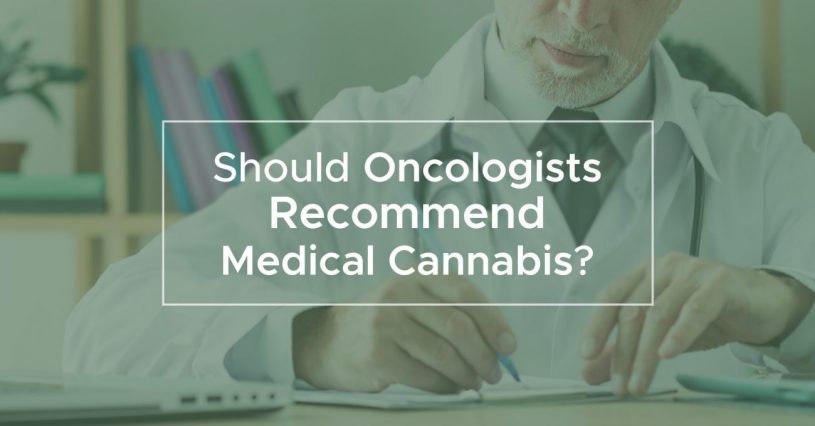
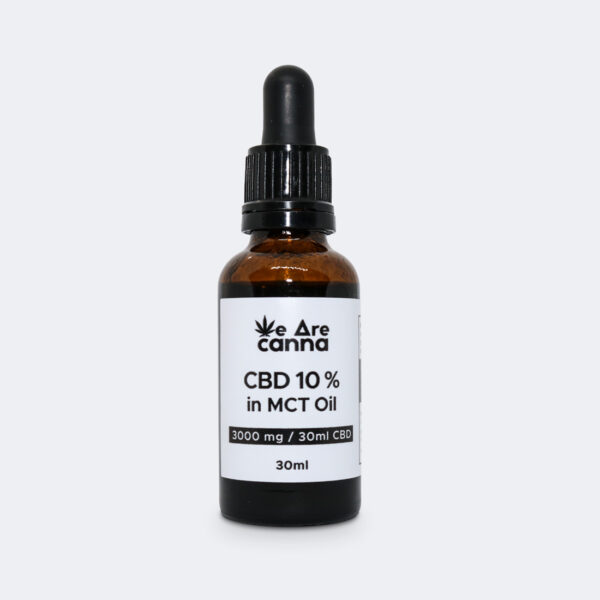
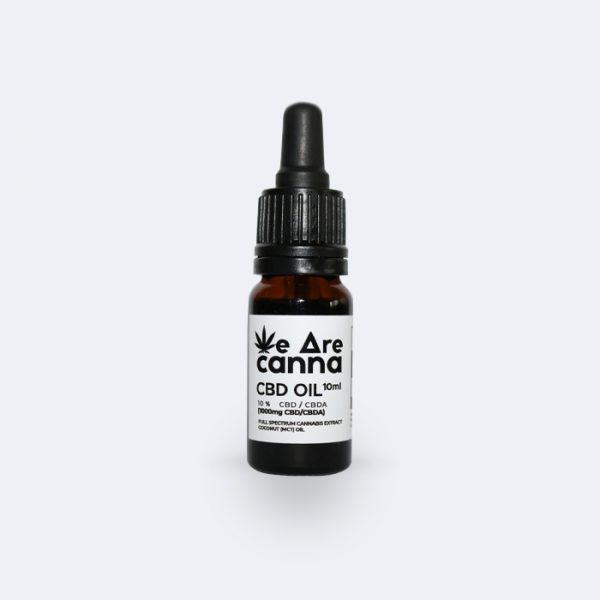
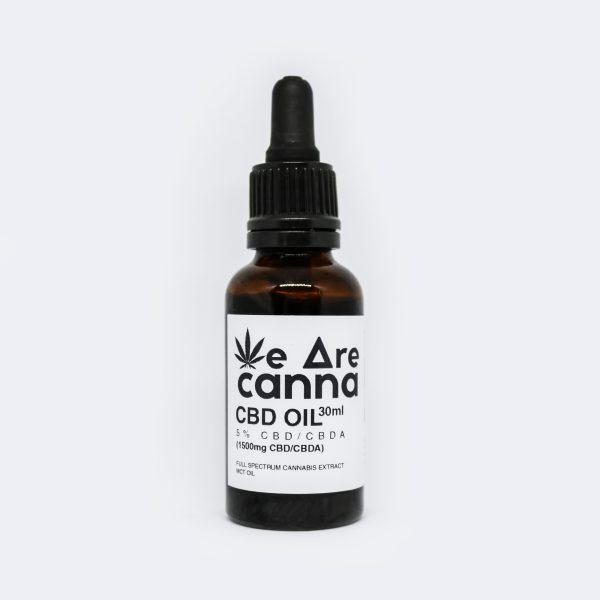
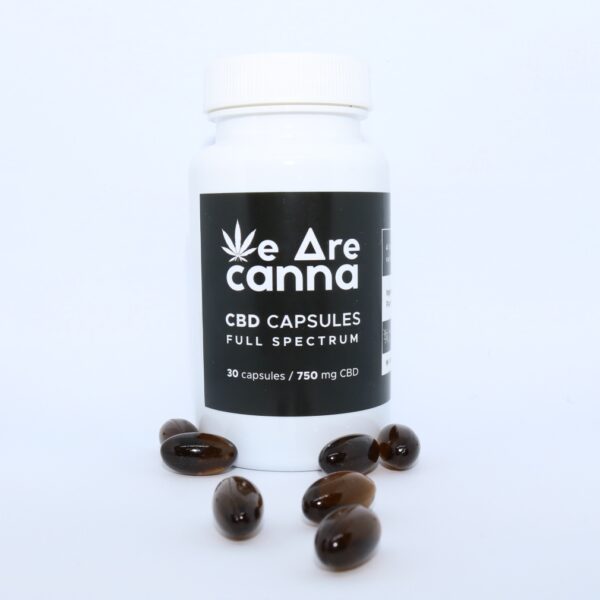
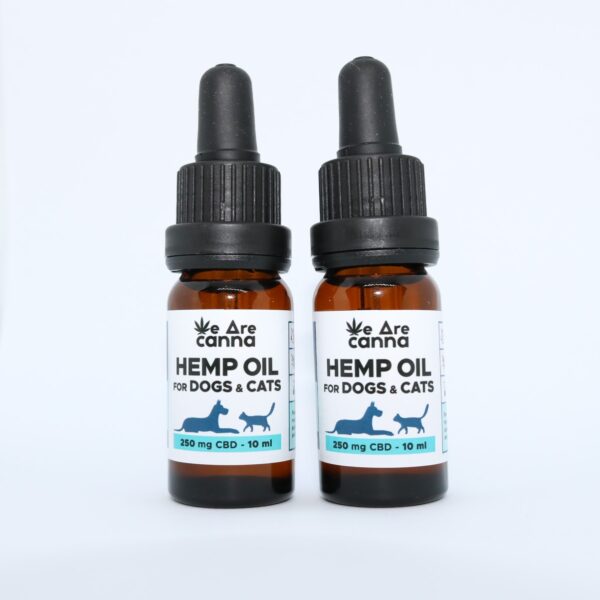
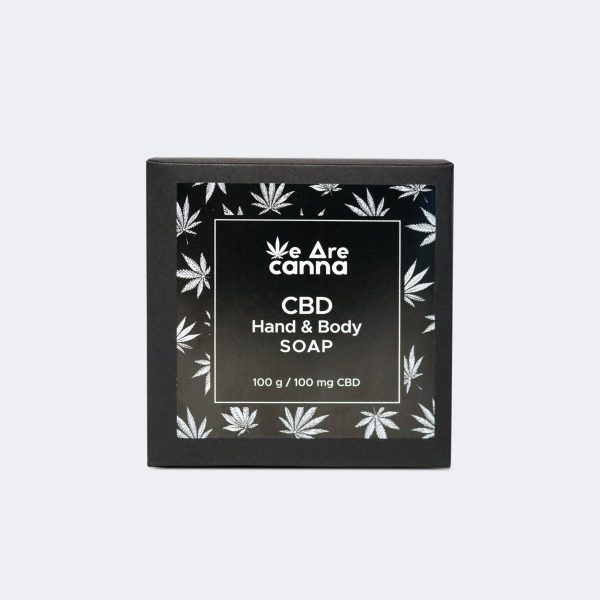
1 Comment